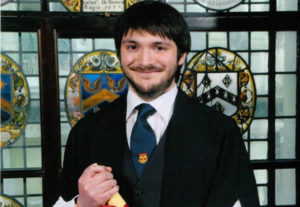If Davies v Liberty Place was an ingenious Mitchell buster has it been torpedoed by Denton v White?
In Paul Dean Davies V Liberty Place (Sheepcote Street) Management Co (2014) Leggatt J found an apparently ingenious way to get round the obvious draconian effects of Mitchell (Andrew Mitchell MP V News Group Newspapers Limited 2013) by a simple but apparently logical maneuvre in finding that the Mitchell test did not apply if the sanction was conditional and had not yet been imposed. The Mitchell decision has been widely condemned as very harsh in imposing a robust enforcement of Rules and Orders and a strict interpretation of Rule 3.9, which prior to the recent Jackson Reforms to Civil Procedure had been used in a wide range of circumstances to obtain relief from a sanction imposed by the Court or the Rules. The message after Mitchell was do not breach Rules or Court Orders and do not expect to be excused if you are in breach unless the breach is trivial or you have a very good reason. However, simple errors or not planning workloads so that deadlines could be met was not a good excuse, even if the other side was not prejudiced and the sanction was unfair or disproportionate. The importance of the efficient and proportionate conduct of litigation and compliance with Rules and Orders could trump the unfairness to the defaulting party, even if their case was struck out or, as in Mitchell, he was denied the right to recover an estimated £500,000 in costs from the other side, if he won the case. The interests of the administration of justice generally were to be allowed to outweigh the interests of justice in the individual case. Davies was a case where the specific circumstances were familiar as Leggatt J was dealing with the late service of witness statements and the application of Rule 32.10 which states “If a witness statement is not served in respect of an intended witness within the time specified by the Court, then the witness may not be called to give oral evidence unless the Court gives permission.” This was the very rule in operation in the Denton appeal due for consideration by the Court of Appeal in the combined ‘Mitchell’ appeals. Leggatt J found in Davies that the Judge below was right to say that in applying Mitchell there would be no relief from sanction but went on to say that the Judge below had been wrong to find that Mitchell applied because it was not an application for relief from sanctions after all. On a true construction of the Rule 32.10 no relief was required until the sanction had taken effect, which would only be when a witness was unable to be called as a result of Rule 32.10. Accordingly a defaulting party did not have to apply for relief from sanctions but could simply apply for an extension of time prior to the time for the witness to be called, because the Rule itself offered a route for avoiding the sanction.
There is clearly a logical justification for this decision, as why else would the rule provide a route for escaping the sanction, if in every case an application for relief can be made, so this specific route must be something different, a consideration on different principles to Mitchell, perhaps akin to a normal application for an extension of time made in time?
However, although Mitchell clearly does not apply to applications for extensions of time made prior to default, the default in Davies had already occurred, even though it was before the sanction had impacted on the case or the defaulting party. When the reasoning in Davies is considered in more detail it sounds very much like a pre-Mitchell judgement with an appreciation of the 2-strike rule of thumb with applications for unless and debarring orders preferred to robust enforcement of the rules. Further, not all sanctions imposed by the Court have an immediate effect, such as the costs sanction in Mitchell itself, which would only have real effect in respect of costs recovery after judgement. In any event in Mitchell, like in Davies, the sanction in Rule 3.14 used by analogy, had the get out clause, unless the Court otherwise Orders. If Davies was right, by the same logic, the Mitchell decision would be different if the sanction had been imposed directly by Rule 3.14, rather than by analogy because it was the pilot scheme rules, which did not have a specific sanction. Despite the attraction of the result in Davies and its initial apparent logic, this decision may have been condemned to a short lifespan as it surely would not withstand close scrutiny of the higher judiciary unless Mitchell and the ethos of the Jackson reforms was to be diluted beyond recognition. Well, we know that this is not gong to happen and the Court of Appeal in the Denton, Decadent and Utilise combined appeals has confirmed Mitchell and provided further guidance on its interpretation. It is clear that there is no going back and Davies is surely sunk by the Denton appeal itself. This was an appeal against an Order granting relief from the sanction imposed by Rule 32.10 for the late service of witness statements and the Court of Appeal granted the appeal and therefore re-imposed the sanction in 32.10 because relief was refused under Rule 3.9. It could not really have done that if Rule 32.10 did not impose a sanction to which Rule 3.9 applied!! The Davies theory of Leggatt J was not however referred to in the judgement of the Court of Appeal, which could therefore lead to a somewhat brave attempt to apply the same argument in the future…..
What Next ?
With most legal matters It is better to take action sooner rather than later. We know that contacting a Solicitor can create anxiety itself, which is why you can contact us without obligation.
Call us on 0800 043 9981 or dial 0333 577 0172 if calling from a mobile.
or contact us via email on enquiry@matthewwilkinson.co.uk we’ll have a no obligation chat with you about what you need and what you hope to achieve. We’ll happily answer any questions or queries you have and give you advice on how to progress your matter.
You can be sure if you contact us that whatever you ask us to do for you will be handled professionally and efficiently, so you can get the best outcome possible without any of the hassle.


